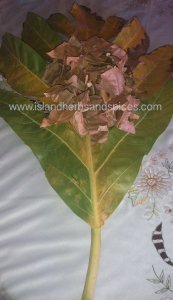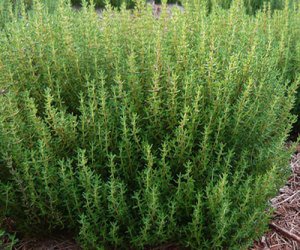Top 10 Heart-Healthy Herbs to Prevent Heart Attacks and Improve Cardiovascular Health
Herbs have been used for centuries to support cardiovascular health by lowering blood pressure, improving circulation, reducing cholesterol, and preventing blood clots. Incorporating these natural remedies into your daily routine can help strengthen your heart and reduce the risk of heart attacks. Here are some of the best herbs for heart health.
1. Hawthorn (Crataegus)
- Known as the "heart herb," hawthorn has been used for centuries to strengthen the heart and improve blood flow.
- Benefits:
- Lowers high blood pressure and cholesterol
- Improves circulation and oxygen supply to the heart
- Helps prevent heart failure and arrhythmias
- How to Use: Take as a tea, tincture, or supplement.
2. Garlic (Allium sativum)
- Garlic is a powerful natural blood thinner and helps prevent blood clots that can lead to heart attacks.
- Benefits:
- Lowers blood pressure and bad cholesterol (LDL)
- Reduces plaque buildup in arteries
- Improves circulation and prevents blood clots
- How to Use: Eat raw garlic, use it in food, or take garlic supplements.
3. Turmeric (Curcuma longa)
- Turmeric contains curcumin, which is a powerful anti-inflammatory that protects the heart.
- Benefits:
- Reduces arterial inflammation and prevents plaque buildup
- Lowers cholesterol and improves blood circulation
- Helps prevent heart disease and blood clotting
- How to Use:
- Drink turmeric tea or golden milk
- Add turmeric powder to food
- Take curcumin supplements for stronger effects
4. Ginger (Zingiber officinale)
- Ginger is known for its ability to lower blood pressure and cholesterol levels.
- Benefits:
- Prevents blood clots
- Reduces bad cholesterol (LDL) and triglycerides
- Lowers inflammation that contributes to heart disease
- How to Use:
- Drink ginger tea
- Add fresh ginger to food
- Take ginger supplements
5. Cinnamon (Cinnamomum verum)
- Cinnamon helps reduce blood sugar levels, which is important for people with diabetes and heart disease.
- Benefits:
- Lowers cholesterol and triglycerides
- Reduces blood sugar levels
- Helps prevent blood clots
- How to Use:
- Sprinkle cinnamon powder on food or in drinks
- Drink cinnamon tea
- Take cinnamon capsules
6. Green Tea (Camellia sinensis)
- Green tea is rich in antioxidants, which protect the heart from oxidative stress.
- Benefits:
- Lowers blood pressure and cholesterol
- Helps with weight loss (important for heart health)
- Improves arterial function and prevents plaque buildup
- How to Use:
- Drink 2–3 cups of green tea daily
- Take green tea extract supplements
7. Cayenne Pepper (Capsicum annuum)
- Cayenne pepper contains capsaicin, which improves circulation and lowers blood pressure.
- Benefits:
- Improves blood flow and prevents clots
- Lowers bad cholesterol
- Helps prevent heart attacks and strokes
- How to Use:
- Add a pinch of cayenne to warm water or food
- Take cayenne pepper capsules
8. Motherwort (Leonurus cardiaca)
- Often called "heart tonic," motherwort is used in herbal medicine to calm the heart and reduce stress.
- Benefits:
- Helps with high blood pressure
- Reduces stress-related heart palpitations
- Improves circulation and heart function
- How to Use:
- Drink motherwort tea
- Take motherwort tincture
9. Holy Basil (Ocimum sanctum)
- Holy basil is an adaptogenic herb, meaning it helps the body cope with stress, a major risk factor for heart disease.
- Benefits:
- Reduces stress-related high blood pressure
- Lowers cholesterol levels
- Improves circulation and blood sugar control
- How to Use:
- Drink holy basil tea
- Take holy basil supplements
10. Flaxseeds & Chia Seeds
- Rich in omega-3 fatty acids, these seeds help keep the heart strong.
- Benefits:
- Reduces cholesterol and inflammation
- Helps regulate blood pressure
- Supports healthy arteries
- How to Use:
- Add ground flaxseeds or chia seeds to smoothies, salads, or oatmeal
Final Thoughts
If you want to keep your heart healthy and prevent heart attacks, incorporating these herbs into your diet can be a natural way to support cardiovascular function. However, if you're on medication for blood pressure, cholesterol, or heart disease, always check with your doctor before adding herbal supplements to your routine.










